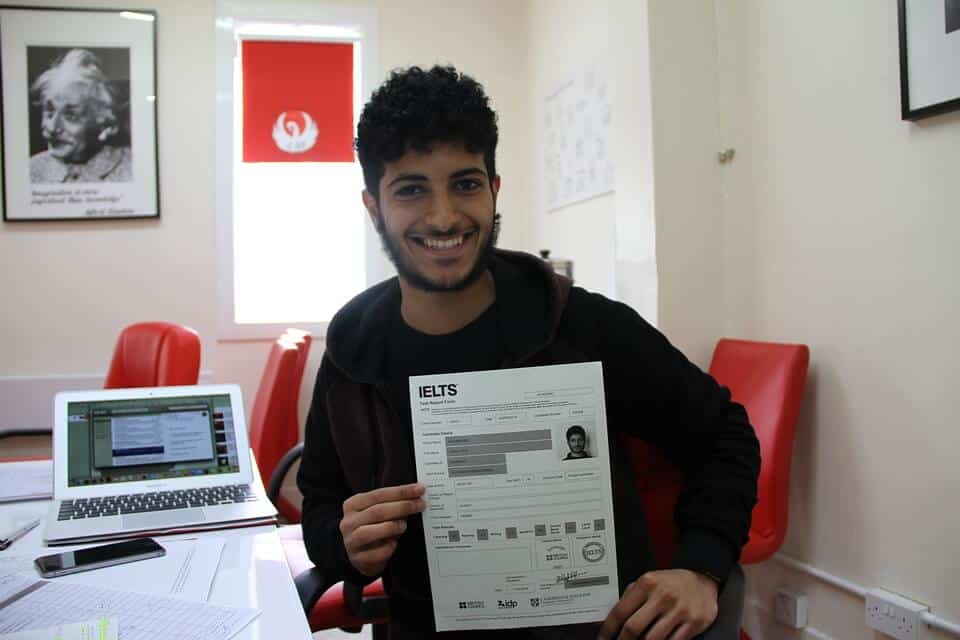Many of us dream about migrating and residing abroad to seek a greener pasture. However, even if you already have the money and the determination, you still have to undergo processes, such as taking the IELTS test. Regardless of where you plan to relocate, you have to take this English proficiency test. It is by far the most famous English test in the world, and recognized globally by governments and private organizations alike. This examination has four elements — writing, reading, listening, and speaking. In this post, we will focus on the aspect that claimed as the hardest, the speaking test. We will also explain why the IELTS speaking test is recorded, and we will provide tips about how you can ace your examination.
What You Should Know about the IELTS Speaking Test 
IELTS is a famous English language capability test conducted on numerous occasions every year. Its primary goal is to assess the English proficiency and capability of people looking to move overseas, either for personal or professional purposes. The standard IELTS examination covers four macro skills: writing, reading, listening and speaking.
If you are planning to take the IELTS test, it’s good to have extensive knowledge about what it covers and how it goes. Perhaps, you have already searched online and found out that most IELTS takers claim that the speaking test is the hardest section among the four. However, most first-timers often take this part for granted. If you want to get a score that can back up your purposes, you ought to prepare beforehand.
The IELTS speaking test requires the examinee to attend in person. It has three sections, which run for 14 minutes on average. The assigned inspector will ask you to talk about yourself first. You can talk about your families or your goals abroad –it’s totally up to you. In the second part, the inspector will give you a specific topic and ask question about your views on the subject. The last part is an extension of the second component in which you will exchange words with the inspector about the given topic.
Why does the inspector record the IELTS speaking test?
Since you are taking the test in person, you might wonder why the inspector needs to record the evaluation. However, you shouldn’t get confused as there plausible reasons why the IELTS speaking test is recorded.
The first reason is for credibility and transparency. The IELTS organization wants to ensure that you will get the results accordingly. Other proctors will also listen to the recorded test. Furthermore, if a recorder runs, there is no room for bribes and other unprofessional dealings.
Second, the audio recording will be up for review. The proctors will perform a more in-depth evaluation of your test. The assessors spare a duplicate of the exam which they can return to, on the off chances that you want to retake the speaking test. It happens when there is a colossal inconsistency between the scores. The recording could also help the assessor to detect if you have complied with the given procedures. This method not just benefits the examiners but also the students. In case you get a low score, you can also use the recording as your basis for improvement.
How to Prepare for the IELTS Speaking Test
The speaking test will determine your fluency in English speaking. It will assess your capacity to convey your ideas, feelings, and thoughts. The results rely on a 9-band score scale, with nine being the highest and one as the lowest. Speaking is a big part of our everyday life. If you aspire to live in an English speaking country, you have to communicate in English at all times. While if you are someone who wishes to pursue higher education abroad, you should aim for the highest score. Many universities abroad require a certain band level before accepting students.
Since an IELTS speaking test is recorded, it is not something you should take easy. Compared with other components such as writing, reading, and listening tests, the speaking test does not allow you to erase or take back what you have said once you realized it’s wrong. The pressure is also more intense because you are sitting face to face with the proctor. During the test, you have to think fast and respond with proper grammar and fluency.
Remember, there is always room for improvement
The best way on how to pass the IELTS speaking test is to come prepared. The good thing is that there is always room for improvement, especially if you dedicate time to practice. You can enhance your speaking skills alone, but it is highly recommended to do it with other people, particularly native speakers. Such efforts will improve your communication skills crucial in the second and last part of the IELTS Speaking Test. Keep in mind that everything that will come out of your mouth should be précised and grammar wise as much as possible. It must also be formal and unconstrained.
During practice, record your voice so you can listen to it afterward. Having a helpful partner, is better. Listen carefully to how you speak and deliver the words and on how you communicate with your partner. Reflect on the accurateness of your words and your discourse sound characteristics. Furthermore, ask your partner to give you a score depending on your performance.
Additional Knowledge that Can Increase Your Confidence
Many people who plan to take an IELTS test feel scared because of several misconceptions. Before jumping into conclusions, you must first research the IELTS myths and truth. Yes, many articles on the Internet highlight different individuals’ personal experiences, but those do not justify what IELTS is all about.
Since the IELTS Speaking Test is recorded, it worries a lot of test-takers. The complexity of the test makes people conclude ideas that are far from the truth.
Perhaps, the most popular misconception that often worries examinees is that you need to sound like a native English speaker. It is a myth. An IELTS Speaking test is recorded to track your proper pronunciation but not the accent. In the pronunciation evaluation, the assessor looks more on the intonation and word stress. There are dictionaries online that could help you identify if your tone and pronunciations are correct.
Many examinees also tend to believe that they should not use complex grammatical structures during the test. No, that is not true. It could serve as a plus factor if you use more complex sentences in the test rather than the basic and simple ones. A student who uses simple and basic sentences will get a lower score than a student attempting to utilize a restrictive condition, regardless of whether they commit a few errors. You should use complex sentence structures that precisely reflect what you need to say.
Things to Avoid When Preparing for the IELTS Speaking Test 
While practicing for your speaking test is highly recommended, English experts advise not to memorize your answer. The IELTS proctors are well-trained to spot well-prepared answers. Once they feel it, they might ask you more complicated questions that can catch you off-guard.
It will also help if you avoid stressing over the assessor’s sentiments. They are not worried about your feelings; they want you to show your talking capacity. Concentrate on furnishing a grammatically correct response to the question. This way, you could impress them, and they might as well give you a favorable score if they feel that you are trying your best.
On the other hand, some examinees overdo their grammar. Keep in mind that the IELTS speaking test is not just about learning the subject-verb agreement. It’s about comprehension as well. You might have prepared a perfectly crafted sentence, but if it is not related to the subject, you might fail.
Come prepared, and nail your IELTS Speaking Test!
According to experts, a prepared student has a higher chance of boosting their score by giving the examiner a broader scope of vocabulary, language familiarity, and articulation. Providing real-life examples, itemized clarifications of your thoughts, and experiences usually deliver better language, which will help you achieve high scores.
Indeed, IELTS is the most comprehensive and competitive English examination. Any non-native English speaker may find it challenging. Well, the good thing is, it is possible to learn anything. As a future examinee for IELTS, it is highly encouraged for everyone to prepare for it. There is no need to stress yourself if you will come prepared for your IELTS speaking test. However, always bear in mind that the other macro skills such as reading, writing, and listening, are important as well. These skills sum up your entire proficiency and capability of taking up a new journey in your life.



